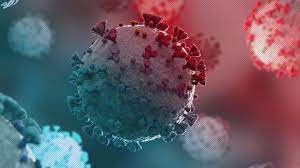Amid the evolving COVID-19 situation, concerns arise globally over the new variant JN.1, which was first detected in the U.S in September of 2023.
The highly mutable virus variant has rapidly spread worldwide, posing a significant threat with its elevated contagion. Symptoms closely resemble earlier COVID variants, with an added emphasis on increased stomach-related symptoms. While new vaccines provide protection, existing antivirals remain effective. Physicians advocate for the latest vaccine, adapting to the evolving virus. Concerns arise regarding transmission timing, indicating contagion before and after symptoms, raising apprehension about reinfection risks for those with the older vaccine.
“JN.1″ is of global interest because it is the dominant variant in the United States and is responsible for the peak in infections in the northern hemisphere. So, while the spread is high, it has not gotten out of control so far,” Javier Sosa Pediatrician, said.
In the current battle against the new COVID-19 variant, JN.1 preventive measures remain to be the most important. Pediatrician Javier Sosa reminds us the importance of how it all starts from home by saying the following:
“As a community, we must prioritize measures we already know — avoid exposure to infected individuals and keep symptomatic children at home,” Sosa said.
This is crucial because in this variant specifically there have been high levels of propagation, as the variant has propagated now globally in a short amount of time. Despite its high level of propagation, Sosa is confident that “the bivalent vaccines protect JN.1 and other Omicron variants”. Moreover, our school nurses reinforce the importance of maintaining preventive protocols, as they talk about how the school is dealing with the new variant by stating the following:
“Our school continues to follow firm measures, including the use of face masks, hand hygiene, and immediate isolation for those presenting any symptoms,” The Columbus School Nurses, said.
Both perspectives highlight the collective responsibility of containing this virus as much as possible, and it all begins with preventive measures. Communities are urged to adhere to proven strategies and prioritize our global health, particularly in high-risk people. Managing the obstacles presented by the recently released COVID-19 variant, JN.1, understanding and being aware of the already known symptoms is crucial. Pediatrician Javier Sosa explains,
However, as with everything, this variant comes with an alteration, people who start feeling the already-known symptoms might also present a higher level of digestion issues. Providing a firsthand patient, Maria Paulina Podesta retells her experience by saying that she had the following:
“Persistent symptoms like weakness, body ache, and sore throat, those symptoms raised suspicion about me being contagious,” Podesta said.
These findings highlight how crucial it is to not only identify the symptoms but also to track their evolution to have an appropriate response to this threat as it also evolves on its own and not only to take care of ourselves but also to take care of our community. Amid widespread worries about the new COVID-19 variant, JN.1, spreading quickly, health expert Dr. Mandy Cohen emphasizes,
“We are seeing JN.1 quickly become the dominant version of the Covid virus, which tells us it is more transmissible. The good news is we don’t see an increase in severity,” Cohen said.
People have contradicting reactions to this, as it is spreading quickly, but the mortality rate has not seemed to change or increase. In addition, Javier Sosa, a Pediatrician, emphasizes the urgency, saying that
“The heightened transmission rate of JN.1 poses a significant risk, needing a swift and collective response,” Sosa said.
Currently, JN.1 accounts for nearly 44% of Covid cases in the US, it has come up 8% since last week according to the CDC. As crucial as prevention is, understanding the propagation of the virus gives us clearer insights into what steps we should take as a global community. Testing is also essential to controlling the illness as it has spread throughout our school community.
“The diagnostic method remains the same, conducting laboratory tests that will differentiate between strains, but the diagnostic methods themselves remain unchanged,” Sosa says, emphasizing the continuity of diagnosis.
Emphasizing the uniformity of testing protocols provides citizens with a sense of satisfaction and reassurance that the variant is under control and will be managed in the same manner that other variants have been contained up to this point.
In agreement, the school nurses state, “Symptom management is conducted, parents are contacted, and children are picked up,” highlighting the importance of symptom control.
Testing is crucial for suspected cases, ensuring an efficient and proactive approach to identifying the virus. Insights from experts, including Pediatrician Javier Sosa and out-of-school nurses, not only address prevention but also delve into symptoms, transmission, and testing evolution. Emphasizing self-care, these experts stress the importance of a consistent response. Despite new variants, maintaining rigorous procedures is vital for controlling the spread and reducing cases.
“We need to take care of each other, it is crucial because we are all responsible for spreading it or containing it, it is up to us,” Podesta states.



